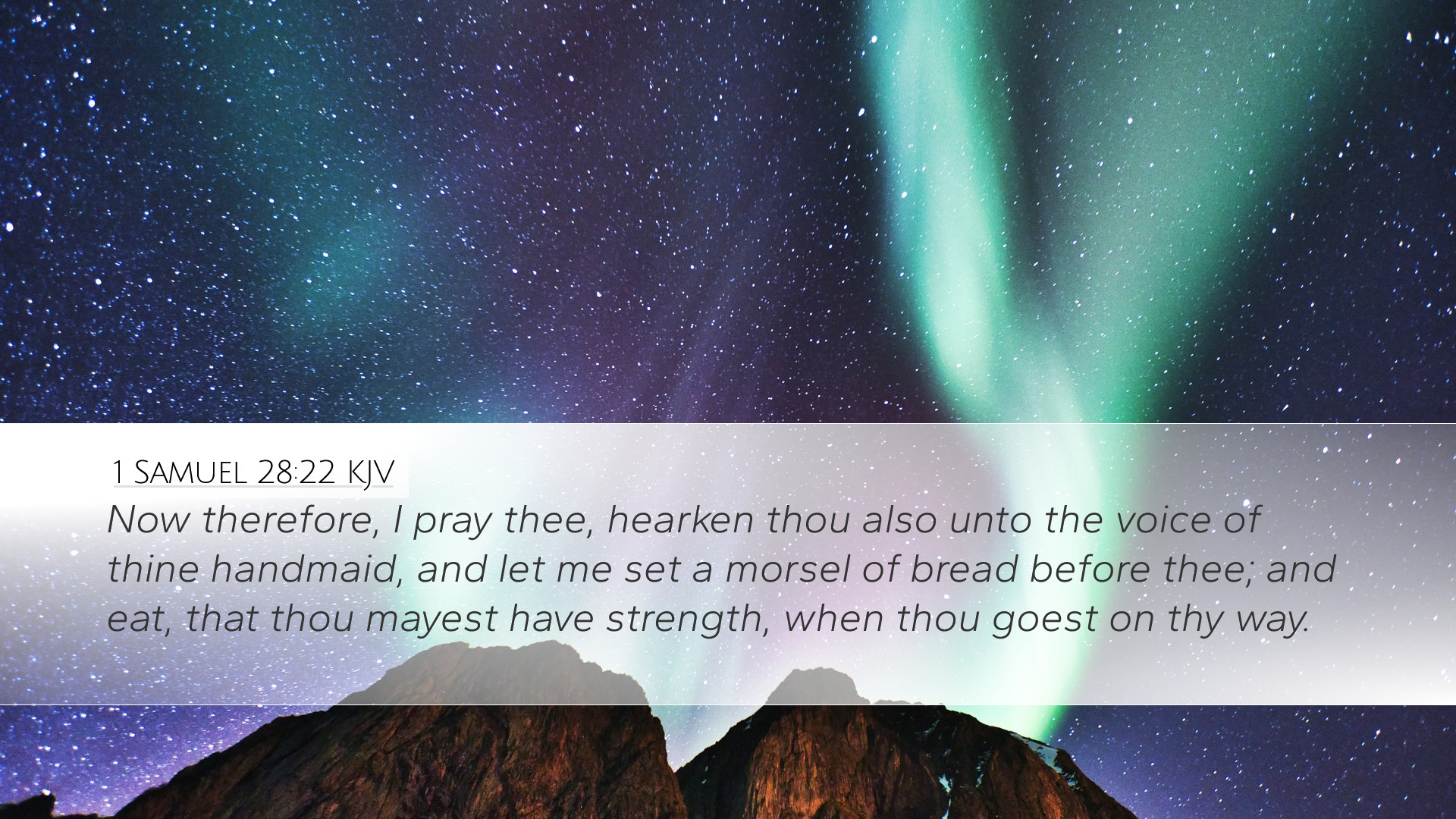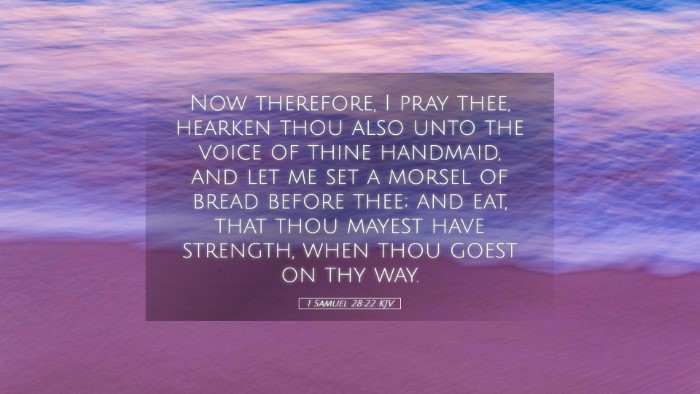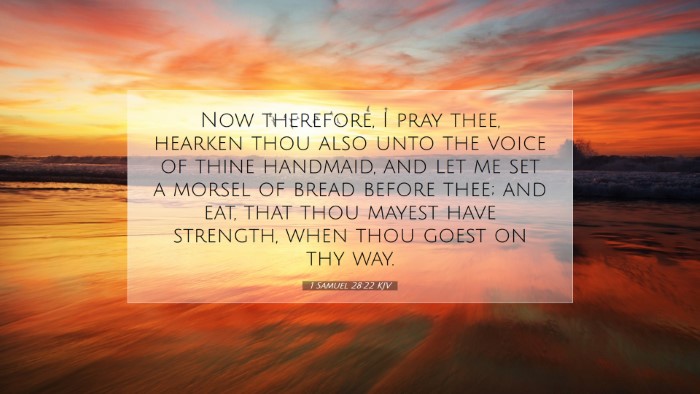Commentary on 1 Samuel 28:22
Bible Verse: "Now therefore, I pray thee, hearken thou also unto the voice of thine handmaid; and let me set a morsel of bread before thee, and eat, that thou mayest have strength, when thou goest on thy way."
Introduction
This verse is a poignant moment in the narrative of 1 Samuel, highlighting the desperation of Saul and the eerie circumstances surrounding his encounter with the medium at Endor. The commentary seeks to draw out the theological implications and practical lessons from this interaction, as well as the overarching themes of divine abandonment and human fear.
Contextual Overview
In this chapter, we observe King Saul as he faces the Philistine army and is deeply troubled by the prospect of battle. Having been rejected by God and without guidance, he seeks out a medium to conjure the prophet Samuel's spirit. The preceding verses build a backdrop of fear, hopelessness, and disobedience, culminating in this request for sustenance from the medium.
Verse Analysis
1. The Plea of the Medium
Saul's encounter with the medium is layered with tension. Her appeal for him to listen reflects not only her desire to set before the panicked King a morsel of food but also brings attention to her being in a precarious position. Drawing from Matthew Henry's insights, we can see that this moment showcases the medium’s precarious situation, as she risks her life by aiding Saul, reflecting a sense of empathy despite her profession.
2. The Symbolism of Bread
The request for bread carries significant symbolism. In biblical literature, bread is often associated with sustenance and life. Here, it serves as a metaphor for spiritual nourishment and providence. Albert Barnes comments on this symbolism, emphasizing that it signifies Saul's desperation not only for physical nourishment but also for spiritual guidance that he has forsaken.
3. The State of Saul's Leadership
Saul's dependence on a medium for comfort and direction speaks volumes about his leadership degeneration. As noted by Adam Clarke, this interaction underscores Saul's tragic decline from a divinely anointed king to seeking guidance from the occult due to isolation from God. This mirrors a key lesson for leaders today: the importance of remaining grounded in faith and leading with reliance on divine wisdom rather than worldly means.
Theological Implications
This verse raises profound theological questions about the nature of God’s presence and the consequences of turning away from Him. The silence of God in Saul’s life becomes more accentuated here, showing how disobedience leads to estrangement from divine guidance.
- Desperation vs. Faith: Saul's plea can be viewed through a lens of spiritual desperation. Instead of turning back to God, he resorts to a means that is contrary to God's law, which leads us to reflect on our own responses to crises.
- The Dangers of Consulting the Occult: The biblical narrative consistently warns against seeking guidance from mediums and spiritualists. Saul’s choice exemplifies a tragic folly that disconnects him from God’s plan.
Practical Applications
For pastors and theologians, this verse serves as a reminder to guide congregants toward deeper reliance on God rather than worldly solutions. Here are some pointers for practical application:
- Encourage Direct Communication with God: Rather than seeking external validations or unorthodox means of guidance, believers are encouraged to earnestly seek God’s voice.
- Highlight the Dangers of Desperation: Many believers may find themselves at crossroads where fear and desperation drive their choices. It’s crucial to remind them that God’s ways are higher, and He desires our trust.
- Foster Discernment: Teach the importance of discernment in spiritual matters, urging individuals to seek wisdom and not succumb to peer pressures or fears that lead them away from God’s truth.
Conclusion
1 Samuel 28:22 serves as a critical reflection on the intersection of fear, disobedience, and the longing for divine wisdom in moments of crisis. The tragic narrative of King Saul reminds us that stepping away from God's sovereignty leads to a place of desperation where one may turn to substances or beliefs contrary to scripture. Bible scholars and leaders are challenged to look beyond the immediate needs of their congregations and emphasize the importance of unwavering faith even amidst adversity.


